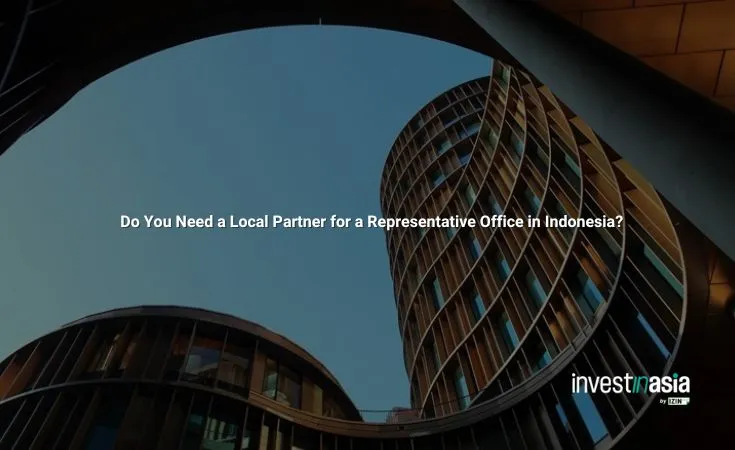Foreign companies often ask a critical question before establishing a representative office in Indonesia: Do I need a local partner? The answer is simple—No, you don’t. Legally, a representative office (KPPA) is fully foreign-owned and doesn’t require any local equity or formal partnership with Indonesian individuals or businesses.
This regulation makes the KPPA one of the most flexible and low-risk entry vehicles into Indonesia’s vast market. You maintain complete control of operations, brand messaging, and strategic decisions.
However, this doesn’t mean you should go it entirely alone.
Also read: Required Licenses and Permits for a Foreign Representative Office in Indonesia
Why Local Partnerships Still Matter—Even If They’re Optional


Although local partnerships aren’t legally required, they are strategically beneficial. A local partner, consultant, or staff member can bridge cultural gaps, accelerate regulatory compliance, and assist in stakeholder engagement. Local professionals understand business customs, government protocols, and how to navigate complex bureaucracies.
You may not need equity sharing or joint ventures—but having local insight on your side can make your market entry smoother, faster, and more effective.
The Legal Framework: Freedom with Guardrails
Indonesia’s regulatory framework, administered by BKPM (Ministry of Investment), explicitly allows foreign companies to open representative offices without local partners. This provision is codified through the OSS (Online Single Submission) system, which streamlines business licensing for foreign entities.
No equity stake is required from an Indonesian party. No need for a local shareholder. No need for profit sharing. However, compliance with OSS registration, tax numbers, and administrative reporting is mandatory.
Also read: The Types of Representative Offices in Indonesia
Hiring Local Staff Without Formal Partnerships
While you don’t need a formal local partner, hiring local employees is allowed—and often beneficial. Local staff can help with:
- Communication and translation
- Understanding market nuances
- Navigating bureaucracy
You may appoint an Indonesian as your Chief Representative or hire both locals and expatriates under permitted visa schemes.
When Should You Consider Partnering Informally?


Here’s when an informal local partnership or staffing solution can help, even if it’s not required:
- You need someone on the ground to liaise with government offices.
- Your operations involve frequent meetings or negotiations in Bahasa Indonesia.
- You want to test-run a supply chain or logistics network.
- You intend to eventually transition into a PT PMA (a limited liability company with foreign ownership).
These are scenarios where local presence—via staff or service providers—brings operational agility without requiring ownership restructuring.
Also read: Representative Office vs. PT PMA in Indonesia: Key Differences for Foreign Investors
Bridge to Action: Where InvestinAsia Helps
Navigating Indonesia’s business landscape alone can be risky, even with the freedom of 100% foreign ownership. InvestinAsia bridges that gap—not by enforcing local partnerships—but by offering deep local insight, full-service setup, and ongoing compliance assistance tailored to your representative office.
From document preparation to OSS registration and office address provision, InvestinAsia ensures your KPPA launch is seamless, compliant, and aligned with your business goals.
Ready to enter Indonesia the smart way—with no local partner required, but with local expertise in your corner?
👉 Set Up Your KPPA with InvestinAsia
Start with a FREE consultation and set up your representative office with confidence.
FAQs
Is a local partner required to open a representative office in Indonesia?
No. A KPPA is fully foreign-owned and does not require a local partner or shareholder.
Can a representative office hire local staff?
Yes. While not mandatory, hiring local staff is common and beneficial for operations.
Are there any limitations to KPPA activities?
Yes. Representative offices (KPPAs) are not permitted to generate revenue or enter into commercial agreements with clients in Indonesia.
Who regulates the setup of representative offices?
The Ministry of Investment/BKPM oversees approvals, licensing, and compliance.
Can a KPPA convert to a PT PMA in the future?
Yes. Many companies start with a KPPA, explore the market, and later transition to a commercial entity.




